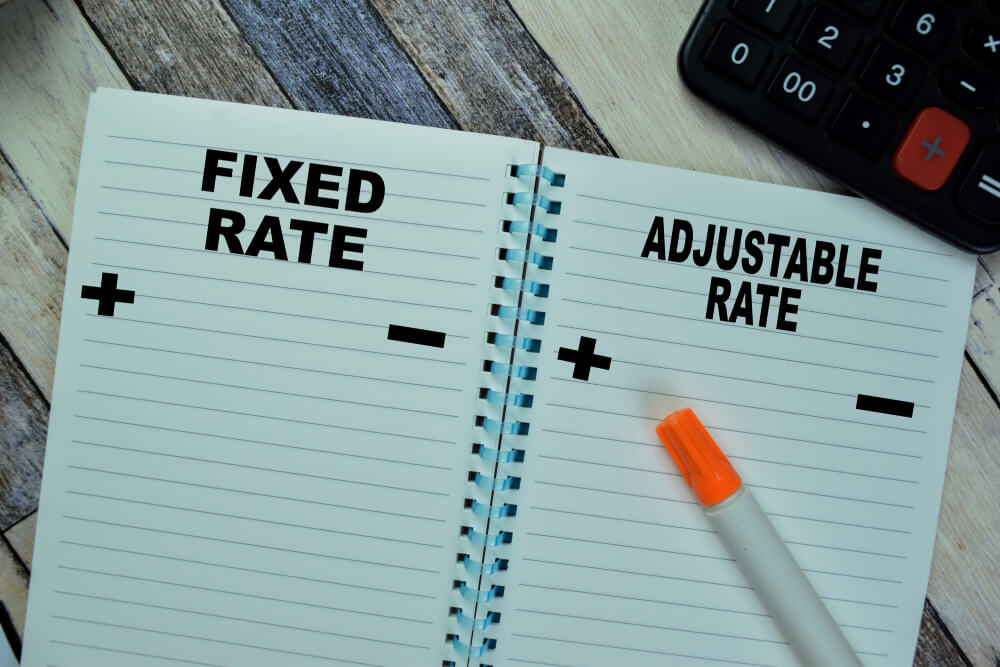What Does “Under Contract” Mean in Mortgage?
When you purchase a home, you’ll encounter various terms defining different stages of the process. One such term is “under contract.” This phrase holds significant weight, especially in real estate transactions, and understanding what it means is essential to navigating the home-buying process. Let’s delve into what “under contract” means in the context of a mortgage, its implications for buyers and sellers, and what happens next in the journey toward homeownership.
Definition of “Under Contract”
When a property is described as “under contract,” the seller and buyer have agreed on the terms of the sale and signed a purchase agreement. This agreement outlines the price of the home, contingencies, timelines, and other critical terms. At this stage, the property is no longer available to different buyers, and the seller is legally bound to proceed with the transaction as stipulated in the contract.
However, “under contract” does not mean the sale is final. Several steps must still be completed before the property changes hands, including obtaining mortgage approval, clearing contingencies, and closing the transaction.
Key Steps That Follow Being “Under Contract”
Once a property is under contract, the journey toward closing begins. Here’s what typically happens:
Earnest Money Deposit
The buyer often provides an earnest money deposit, a show of good faith that they are serious about purchasing the home. This deposit is usually held in escrow and later applied toward the down payment or closing costs.
Contingency Period
Most real estate contracts include contingencies, which must be met for the sale to proceed. Common contingencies include:
- Home Inspection Contingency: Allows the buyer to conduct a professional home inspection to identify any issues with the property. Depending on the findings, the buyer can negotiate repairs, request a price reduction, or leave the deal.
- Financing Contingency: Ensures the buyer can secure a mortgage loan. If the buyer cannot obtain financing, they can exit the contract without penalty.
- Appraisal Contingency: Requires the property to be appraised at or above the agreed-upon purchase price. If the appraisal is lower, the buyer and seller may renegotiate or terminate the agreement.
- Sale of Existing Home Contingency: Some buyers make their purchase contingent on selling their home.
Mortgage Application and Approval
Once under contract, the buyer formally applies for a mortgage. The lender will verify income, credit, assets, and the property’s value to ensure the buyer qualifies for the loan. This process includes:
- Pre-Approval vs. Final Approval: While many buyers obtain pre-approval before making an offer, final approval occurs during underwriting.
- Underwriting: The lender’s underwriter assesses the buyer’s financial profile and the property’s suitability as collateral.
Title Search and Insurance
A title company conducts a title search to ensure the property has no liens, claims, or legal issues that could affect ownership. Title insurance is typically purchased to protect against potential disputes over ownership.
Appraisal
The lender orders an appraisal to determine the property’s market value. This step ensures that the loan amount aligns with the property’s worth.
Negotiations and Repairs
If the inspection reveals issues, the buyer and seller may negotiate repairs or adjustments to the sale price. Both parties must agree in writing to any changes.
Closing Disclosure
The lender provides the buyer with a Closing Disclosure at least three business days before closing. This document outlines the final loan terms, monthly payments, and closing costs.
Closing Day
On closing day, all parties meet to finalize the transaction. The buyer signs mortgage documents, pays closing costs, and receives the keys to their new home. The seller transfers ownership, and the local government records the transaction.
Implications for Buyers and Sellers
For Buyers
Being under contract is an exciting milestone, but it’s not the journey’s end. Buyers should:
- Stay Responsive: Promptly provide any documents requested by the lender or other parties.
- Avoid Major Financial Changes: Large purchases or new debts can jeopardize mortgage approval.
- Monitor Deadlines: Missing deadlines for contingencies or other requirements could lead to losing the earnest money deposit or the deal itself.
For Sellers
Once under contract, sellers should:
- Prepare for Inspections and Appraisals: Ensure the property is accessible and in good condition.
- Review Contingencies: Be aware of conditions that could allow the buyer to back out.
- Plan for Moving: Start preparing for the transition to their next home.
Common Questions About “Under Contract”
Can a seller accept another offer while under contract?
Generally, no. Once a property is under contract, the seller is legally bound to honor the agreement with the buyer. However, the seller may accept backup offers if the current deal fails.
Can a buyer back out of a contract?
Yes, but the ability to back out depends on the contingencies in the contract. If the buyer exits for a reason not covered by a contingency, they risk losing their earnest money deposit.
How long is a homestay under contract?
The timeline varies but typically ranges from 30 to 60 days. Delays can occur due to financing issues, repairs, or other factors.
What happens if contingencies aren’t met?
If contingencies aren’t met, the buyer and seller can renegotiate, extend deadlines, or cancel the contract.
Conclusion
Understanding what it means to be “under contract” in a mortgage is essential for buyers and sellers. This phase signifies a significant step forward in home-buying but requires careful attention to detail. By navigating contingencies, securing financing, and meeting all contractual obligations, buyers and sellers can ensure a smooth transition to closing day. Whether purchasing your first home or selling a property, being informed about this critical stage will help you move confidently toward your real estate goals.
Thank you for reading! If you enjoyed this article and want to explore more content on similar topics, check out our other blogs at Sonic Loans, Sonic Realty, and Sonic Title. We have a wealth of information designed to help you navigate the world of real estate and finance. Happy reading!
Are you looking for the right loan? Check out Sonic Loans for tailored mortgage solutions that make home financing simple and efficient.
Mastering your debt-to-income (DTI) ratio is a crucial step on the path to homeownership. This...
Mortgage rates are not just numbers, they are the key to understanding the long-term financial...
When applying for a mortgage, borrowers often wonder which lenders use FICO 8 scores and...
The 30-year fixed mortgage rate, as reported by Freddie Mac, is a widely followed indicator in...
Your mortgage is one of the most significant financial commitments you’ll make in your lifetime. Understanding...
Saving for a down payment on a house can seem like a daunting task, but...
Embarking on the journey of buying your first home can be both exciting and daunting...
The decision between renting and buying a home is one of individuals’ most significant financial...
One of the most significant decisions homebuyers face is selecting their mortgage term. While the...

















